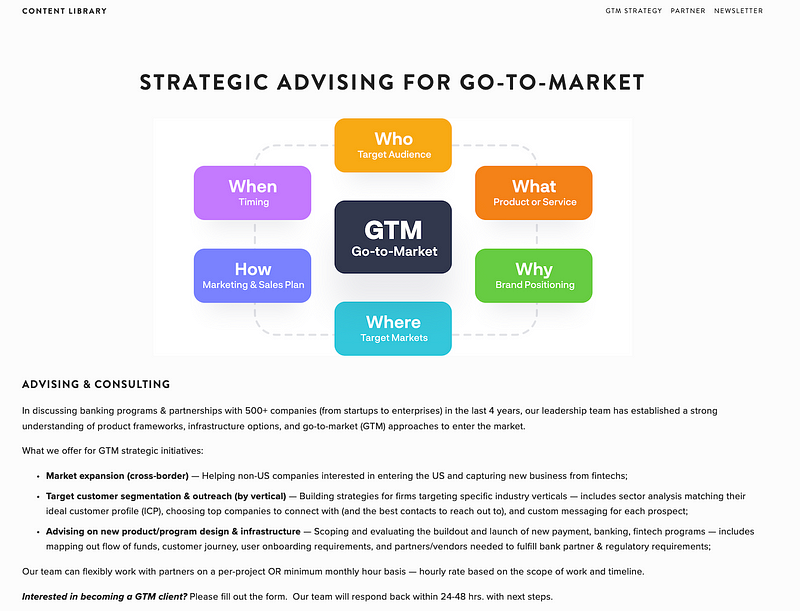Navigating Differentiation in the FinTech Landscape Today
Written on
Chapter 1: The Importance of Differentiation in FinTech
In the past decade, countless fintech startups have emerged, often relying on paid acquisition methods such as marketing, advertisements, and signup bonuses as their initial growth strategies. As these startups begin to gain traction and their user base expands, the focus typically shifts towards more cost-effective customer acquisition methods. The challenge lies in reducing the cost per acquisition while increasing user volume.
Once the effectiveness of growth marketing channels starts to diminish, it becomes vital for startups to identify what sets their company, platform, and product offerings apart from the competition. Differentiation is key for new entrants to carve out a unique space in the market, allowing them to achieve substantial growth while keeping acquisition costs low. A well-established differentiation creates a barrier between a business and its competitors, fostering long-term success.
Without this competitive edge, startups risk wasting resources on marketing to acquire new customers and additional spending to retain them through incentives and rewards.
Section 1.1: Why Differentiation is Crucial in FinTech
Unlike other industries that deliver tangible products, the financial services sector often lacks physical offerings. Historically, when retail banks were the primary option for opening new accounts, customers received little more than a welcome packet filled with disclosures and forms. This scenario makes it difficult to distinguish one bank's products from another’s.
At a fundamental level, deposit accounts at different banks function similarly, with most offering FDIC insurance and basic features like debit cards, ATM access, and digital banking apps. The inherent sameness within the industry, largely due to stringent regulations, makes effective advertising and branding essential.
As previously noted, marketing efforts tend to yield diminishing returns over time. The focus must therefore shift towards what differentiates a specific company. For startups aspiring to achieve significant growth, this differentiation arises from innovative strategies in product distribution and unique value propositions.
Unfortunately, the current funding landscape significantly impacts a startup's ability to experiment and discover effective differentiation strategies. During periods of low interest rates and economic growth, funding was relatively easy to secure, with many startups raising capital every 12 to 18 months between 2015 and 2021. Today, however, securing new funding rounds has become a more daunting task, requiring fintech companies to adopt strategic approaches tailored to their specific offerings and target demographics.
Subsection 1.1.1: Exploring Paths to Sustainable Differentiation

Here are three distinct avenues for founders and teams to consider as they work towards establishing sustainable differentiation:
Path 1: Improving Conversion Rates
For emerging companies, attracting users and successfully delivering their products is a pathway to success. Customers often arrive at a website or store with the intent to purchase, making it essential to finalize sales efficiently. However, fintech firms face unique challenges due to the highly regulated nature of the financial services sector.
These startups must implement risk mitigation strategies as part of their operations. Potential users signing up for digital wallets may have ill intentions, such as committing fraud. Similarly, new credit card customers might plan to default on their payments. Accurately predicting fraudulent activity and estimating potential losses is a complex challenge, as poor estimates can quickly derail business models.
To ensure quality user acquisition, fintech companies need to establish sound risk management practices. This can involve:
- User Routing by Type: Effectively connecting specific user tiers to the right partners.
- Custom Underwriting: Tailoring underwriting processes based on use cases and specific needs.
- Conversion of Existing Customers: Encouraging current users to sign up for additional products based on established relationships.
Path 3: Reducing Operating Costs
Startups can quickly gain a competitive edge by identifying inefficiencies in established competitors. Traditional banks often rely on outdated technologies and manual processes. By focusing on areas ripe for improvement, startups can adopt innovative methods that enhance efficiency and reduce costs.
For instance, employing artificial intelligence (AI) and machine learning (ML) can streamline operations, enhancing user onboarding and fraud management. Additionally, startups might explore partnerships to sell products without incurring substantial marketing expenses, allowing them to pass savings onto consumers.
Chapter 2: Finding a Winning Strategy
For founders, operators, and product teams within the fintech space, the path forward is increasingly intricate. Identifying growth strategies that provide a competitive advantage without requiring heavy capital investment is essential.
By exploring one or more of the paths outlined above, fintech companies can establish sustainable differentiation, ensuring their longevity amid the ever-evolving financial services landscape. The latest wave of entrepreneurs should critically assess how their offerings can stand out in a crowded market, as many similar products have faced closure due to a lack of distinctiveness.
This first video features Kelly Waltrich discussing how marketing, differentiation, and technology are reshaping financial advice.
The second video showcases Scott Sanborn talking about investing in technology and differentiation strategies for banks.
If you're interested in enhancing your company's strategic initiatives, consider reaching out to us at FinTechtris, where we offer consulting and advising on growth strategies tailored for both fintech and non-fintech firms.